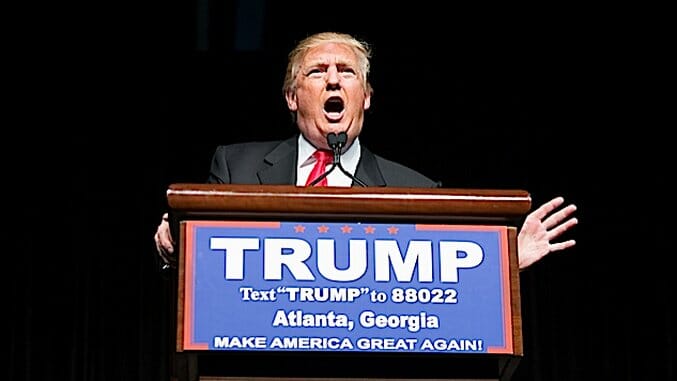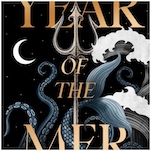The 2016 Election is Also a Desperate Battle for Poor White Voters, and the Republicans are Winning

For 40 years, the poor white vote in America has largely belonged to the Republican party. For the first time in a very long time, that demographic is up for grabs, and the party that capitalizes on this chaos could be looking at electoral dominance for decades to come.
![]()
Last night, after Donald Trump won all five states in the northeast primaries, I watched in something like amazement as he railed against the loss of manufacturing jobs in America in his victory speech:
“I traveled through New York State,” he said, “and every place we went, manufacturing down 40 and 45 percent, and even more. Then we go to Pennsylvania and we see the same thing, you loo kat what’s happening with steel and so many other industries…and every single place I go is a disaster, manufacturing down 40, 45, 50, 60 percent sometimes…in a relatively short period of time. Our jobs are being sucked away from our country, and we’re not going to let it happen anymore, folks. We’re going to make it very, very difficult to do that, and when companies want to leave our great country, and lay off all these great people that in many cases helped build the country, there will be consequences for that company to pay.”
And later, after a reporter asked him about Hillary Clinton:
“I mean, Hillary’s…I call her ‘Crooked Hillary,’ she’s crooked. She’ll be a horrible president, she knows nothing about job creation, her husband signed NAFTA, which destroyed this country economically, I will tell you. You look at New York State, you look all over New England, you look at Pennsylvania, NAFTA was a disaster. Her husband signed it. It was a disaster for this country.”
Now, we could argue about how much Donald Trump actually cares about NAFTA, or whether he’s serious about repealing it or even imposing tariffs for American companies that outsource labor. (I get especially cynical when I remember that Trump’s own clothing line manufactures in China and Mexico.) But let’s skip that for now. Regardless of his true intentions, the fact that this rhetoric is coming out of the mouth of the Republican frontrunner is…well, it’s flabbergasting.
![]()
For the record, he’s right about free trade, which has been as bad for poor people around the world as it has been for working class Americans. But Republicans have always been huge advocates of free trade, for the simple reason that Republicans have always been the party of big business, and free trade means higher profits for corporations as they either outsource labor to low-wage nations, or use the threat of doing so to weaken unions and lower wages in America. Look, for example, at the positions on free trade agreements taken by John Kasich and Jeb Bush and Marco Rubio, the three most fiscally traditional Republicans in this year’s race. George H.W. Bush was president who first proposed the free trade agreement with NAFTA, and signed it in Dec. 1992, and no serious Republican contender since has opposed that deal or any of the others that followed.
But of course, the Republicans have not led this fight alone. Bill Clinton was the president who signed NAFTA into law, and without the support of many Democrats in the House and Senate, it never would have been ratified. President Obama has been instrumental in fast-tracking the Trans-Pacific Partnership, and Hillary Clinton was a strong advocate for that agreement before pressure from the progressive wing of the party led her to oppose it in this election cycle—an opposition that feels very insincere, and very temporary.
Meanwhile, more than a million jobs have been lost in America as a result of free trade agreements—700,000 alone due to NAFTA—and it has weakened labor unions and reduced wages at many of those that remain. You would expect a pro-labor candidate like Bernie Sanders to rail against free trade, and he does. What you wouldn’t expect, in a million years, is for the leading Republican to be speaking the same language.
-

-

-

-

-

-

-

-

-

-

-

-

-

-

-

-

-

-

-

-

-

-

-

-

-

-

-

-

-

-

-

-

-

-

-

-

-

-

-

-








































